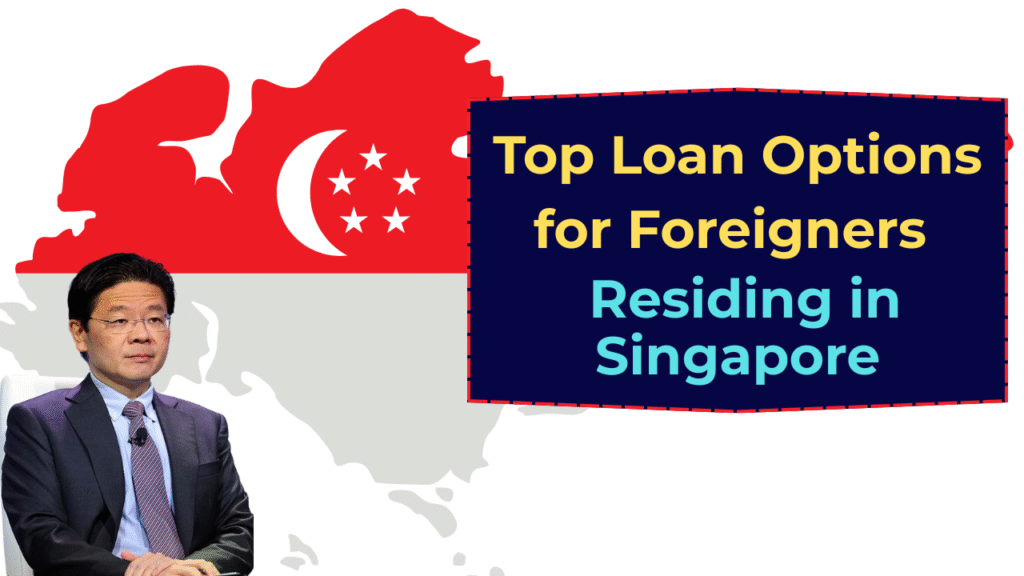Singapore is a global financial hub, attracting many foreigners for work, study, and business. Whether you are an expat settling down or a foreigner planning to stay long-term, you might need access to credit or loans for various purposes buying a home, financing education, or covering personal expenses. However, navigating the loan landscape as a foreigner can be challenging, as lending criteria and available options differ from those for Singapore citizens and permanent residents.
This article explores the best loan options available for foreigners living in Singapore, providing clear, practical guidance to help you make informed decisions.
Understanding the Loan Landscape for Foreigners in Singapore
Before diving into loan options, it’s important to understand the general context:
- Eligibility: Many banks and financial institutions in Singapore have stricter lending criteria for foreigners compared to locals. This is primarily because foreigners usually do not have permanent residency and may have less stable ties to the country.
- Loan Amounts and Interest Rates: Loan amounts for foreigners are often smaller and interest rates slightly higher to account for the higher risk perceived by lenders.
- Documentation: Expect to provide comprehensive documents, such as proof of income, employment pass, valid visas, and sometimes a local guarantor or collateral.
1. Personal Loans
Personal loans are unsecured loans typically used for general expenses, such as travel, home renovation, or medical costs. Many Singapore banks offer personal loans to foreigners, but with conditions:
- Eligibility: Most banks require a minimum employment period of 6 to 12 months in Singapore.
- Loan Amounts: Usually capped at a multiple of your monthly income, often around 6 to 12 times.
- Interest Rates: Interest rates tend to be higher than for locals, usually ranging between 6% to 10% per annum.
Popular lenders for personal loans to foreigners include DBS, OCBC, and UOB. It’s advisable to check individual bank websites for up-to-date offers and eligibility criteria.
2. Home Loans (Property Loans)
Buying property is a major financial commitment, and many foreigners are interested in purchasing homes in Singapore. However, obtaining a home loan as a foreigner can be more complex.
- Loan-to-Value (LTV) Ratio: For foreigners, the LTV ratio is usually lower compared to locals. This means you may need to provide a higher down payment (typically 40% or more).
- Property Restrictions: Foreigners are only allowed to buy certain types of properties, such as private condominiums or apartments. Buying landed property or HDB flats usually requires special approval or is restricted.
- Interest Rates and Tenure: Interest rates may be marginally higher, and loan tenure is often shorter (up to 25 years compared to 30 years for locals).
Banks like DBS, Maybank, and Standard Chartered offer mortgage services for foreigners. It is important to get a pre-approval before making property offers.
3. Education Loans
If you are a foreigner studying in Singapore or funding your children’s education, education loans are another option.
- Government Support: Education loans backed by the government tend to be available primarily to citizens and permanent residents, so foreigners usually rely on private lenders.
- Private Education Loans: Many banks and financial institutions provide student loans, but these often require a Singaporean or PR guarantor.
Key Factors to Consider When Applying for a Loan as a Foreigner
Employment Pass and Residency Status
Your visa type affects loan eligibility. Typically, those holding an Employment Pass (EP) or S Pass with stable employment have better chances of securing a loan. Some lenders may not accept short-term passes like Work Permits.
Credit History
Establishing a good credit history in Singapore significantly improves your chances. Using local credit cards responsibly and repaying any existing loans promptly can build your creditworthiness.
Income Stability and Debt-to-Income Ratio
Lenders assess your income stability and how much debt you already carry. Maintaining a healthy debt-to-income ratio (ideally below 40%) improves loan approval chances.
Tips for Foreigners Applying for Loans in Singapore
- Shop Around: Different banks have varying policies for foreigners. Comparing interest rates, loan tenure, and fees can save you money.
- Prepare Documentation: Have your passport, valid visa, employment contract, payslips, bank statements, and other relevant documents ready.
- Consider Loan Insurance: This can protect you in case of unforeseen circumstances like job loss or illness.
- Seek Professional Advice: Mortgage brokers or financial advisors familiar with foreigners’ lending can help navigate complex requirements.
Final Thoughts
While obtaining loans in Singapore as a foreigner is generally more challenging than for locals, it is certainly possible with the right preparation and understanding of the process. Whether you need a personal loan, a home loan, or education financing, it’s essential to assess your financial situation, check your eligibility carefully, and compare loan products before committing.
For the most accurate and detailed information, visiting official financial institution websites and government portals like the Monetary Authority of Singapore (MAS) can provide up-to-date guidance and policies.




